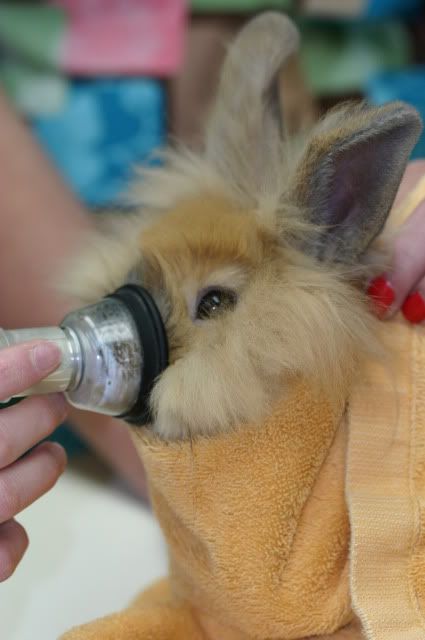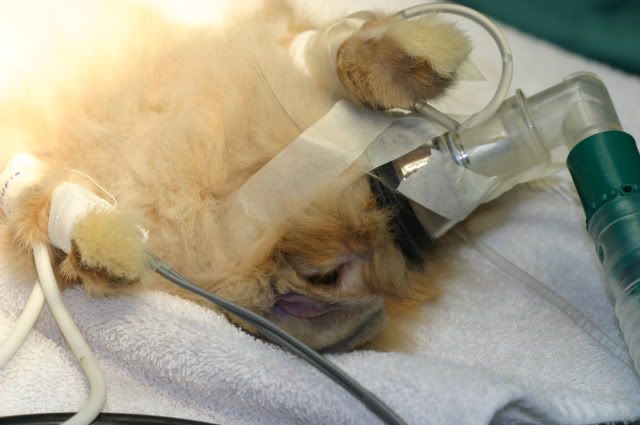Minerva
Elizabeth
Hi all. I am looking for some advice. I'll try to be as succinct as possible but it's kind of a long story.
Last week I booked two unaltered males (two of the ones I've taken in) to be neutered. One has always had what appear to be allergies and the vet decided that he wanted to put him on a week of baytril just in case before doing the neuter. I'd wanted to do this anyway as a precaution, so I agreed. The other one was neutered as planned.
Both came home doing well. The neutered male (sorry, I can't bear to mention his name yet) seemed quite alert considering. I placed his partner back in their pen and put him in the recovery cage alone. He ate immediately as well as drank, peed, and pooped. I was thrilled and felt that this would be a breeze. I checked on him periodically and he seemed fine. Before bed he seemed quite tired and I realized that I probably should have turned the light off a bit earlier so that he could get some rest.
The next morning he was very lethargic. His ears were a bit cool. I quickly made him a heating pad with rice and was wavering over what I ought to do when I saw him struggle as he tried to get up. That decided me; he was going back to the vet. As I stooped to sit him upright, however, he simply slumped over and was still. Just like that, he passed away. I was completely shocked and horrified. He was perfectly young and healthy and the thought of him dying never crossed my mind.
Now, of course, I am terrified to take his companion in to be neutered. I wanted to blame the vet of course, but when he called and talked to me he seemed not only very knowledgeable about rabbits, but also very caring about them.
I've summarized his responses to what I asked/mentioned in the next post for you guys to look over and offer your opinions on.
Last week I booked two unaltered males (two of the ones I've taken in) to be neutered. One has always had what appear to be allergies and the vet decided that he wanted to put him on a week of baytril just in case before doing the neuter. I'd wanted to do this anyway as a precaution, so I agreed. The other one was neutered as planned.
Both came home doing well. The neutered male (sorry, I can't bear to mention his name yet) seemed quite alert considering. I placed his partner back in their pen and put him in the recovery cage alone. He ate immediately as well as drank, peed, and pooped. I was thrilled and felt that this would be a breeze. I checked on him periodically and he seemed fine. Before bed he seemed quite tired and I realized that I probably should have turned the light off a bit earlier so that he could get some rest.
The next morning he was very lethargic. His ears were a bit cool. I quickly made him a heating pad with rice and was wavering over what I ought to do when I saw him struggle as he tried to get up. That decided me; he was going back to the vet. As I stooped to sit him upright, however, he simply slumped over and was still. Just like that, he passed away. I was completely shocked and horrified. He was perfectly young and healthy and the thought of him dying never crossed my mind.
Now, of course, I am terrified to take his companion in to be neutered. I wanted to blame the vet of course, but when he called and talked to me he seemed not only very knowledgeable about rabbits, but also very caring about them.
I've summarized his responses to what I asked/mentioned in the next post for you guys to look over and offer your opinions on.






